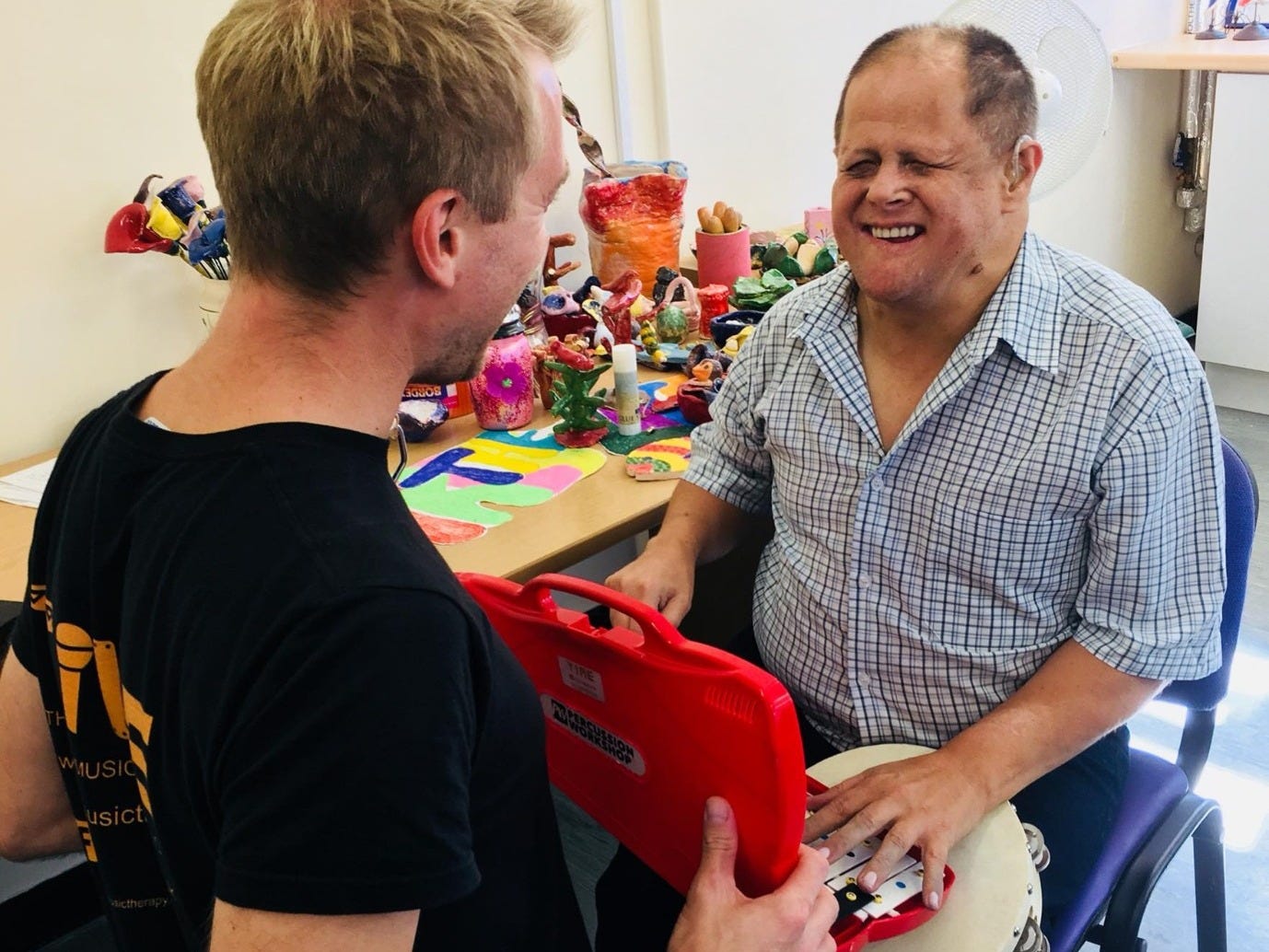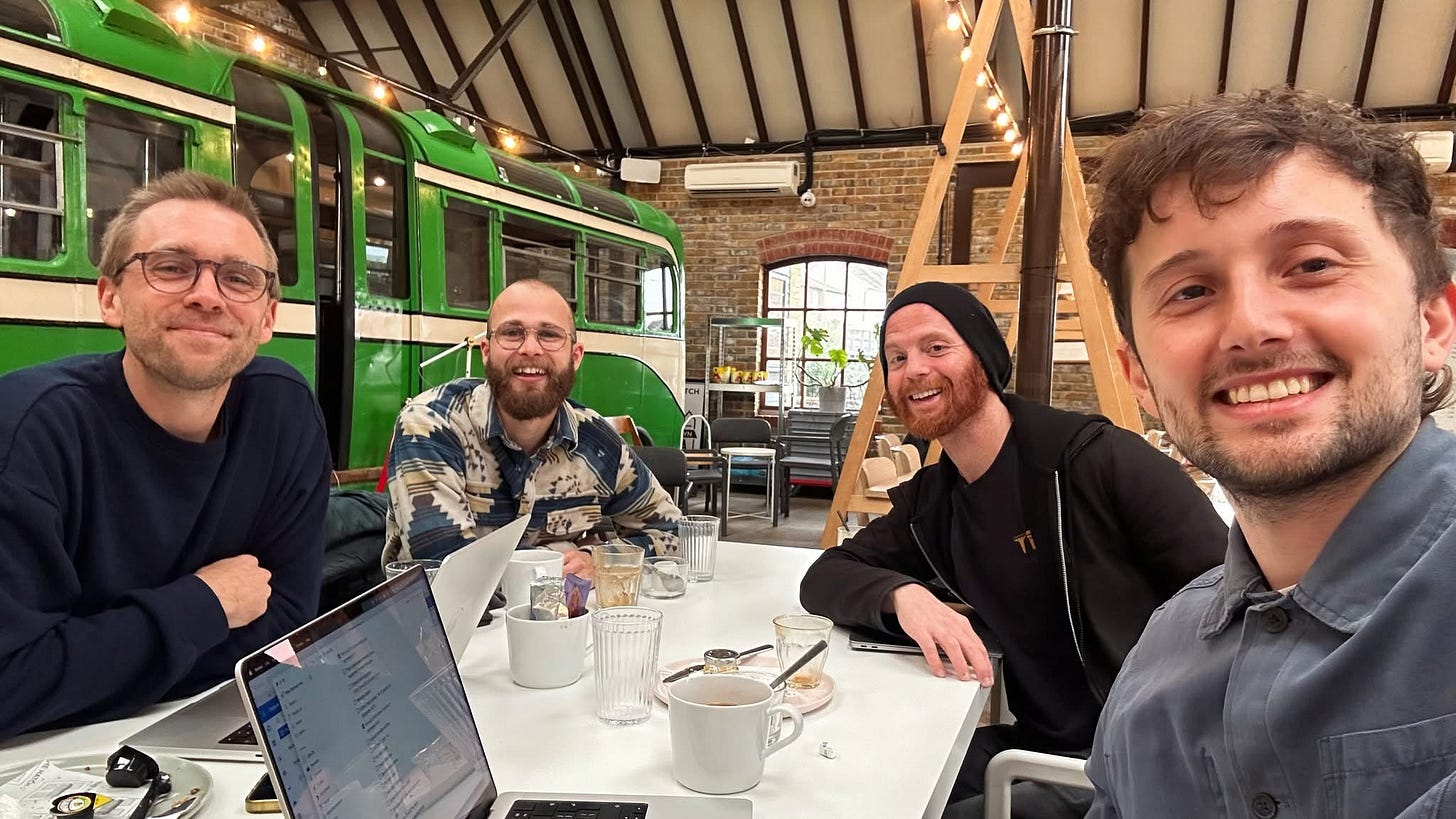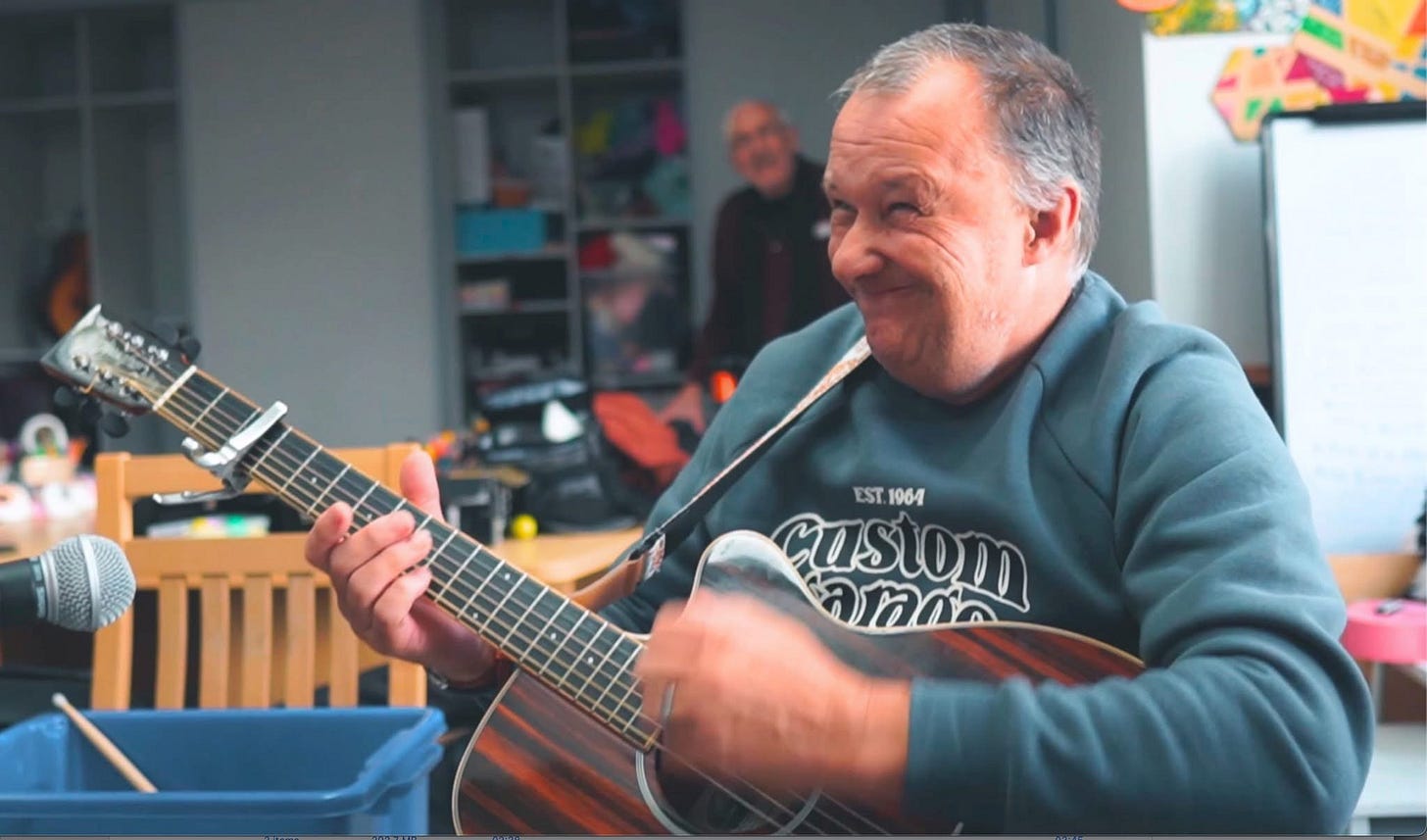My music charity started as 3 mates, with a mission to make music accessible to everyone.
But as the dream got bigger, we had to learn how to run a business, while staying true to our ethos.
I’d like to share a bit about that journey. And hopefully inspire someone reading this to not only share their creative passion with the world, but think about how it could positively impact others too.
Get Started
The journey from a fortnightly drop-in session, to a full time business, with multiple staff - and then acquiring a charity number, has been one of the proudest achievements in my life.
I urge anyone contemplating:
📊 A business idea
🧑🎨 A creative outlet
🎶 Trying the instrument you've always wanted to play
💡 The idea you have to help your local community
💬 That language you want to learn
Whatever it is. Just get started. Don’t let the bigger picture overwhelm you.
If I was parachuted in to my company or charity now, there's no way I would instantly:
👉 Understand the industry
👉 Manage my time very well
👉 Be confident to network
👉 Construct and deliver the most effective sessions
👉 Understand employing and managing staff
👉 Creating cashflows & submitting accounts
The list goes on.
But by starting, you learn. Fast. And that never stops.
I've made mistakes. I’ll make more.
And I’m looking forward to learning from them.
Letting Go to Grow
For 8 years, it was just me and 3 friends, who operated every department of our music charity. Mates who shared a vision to make music accessible to people of all abilities.
We built it from the ground up, learning as we went and figuring out the business side, while still delivering music sessions.
It was exciting. At times it was exhausting.
And we reached a point where we realised we couldn’t do everything alone.
✅ We needed expertise beyond what we had
✅ We needed to trust others to help us grow
So, we started bringing in external staff and mentors.
For the first time, it wasn’t just the three of us - we were building a team.
That shift meant stepping back, letting go of full control, and creating a structure where we could bring in passionate people to help us expand.
And that’s not easy.
If you’re growing something of your own, what’s been your biggest lesson in learning to let go and bring others in?
It's hard to reach that point where you trust that others will 'get it' as much as you do. Share the same vision, goals and passions. But they're out there. And the help and support you receive, is immense.
That’s something we've learned about leadership - it’s not about knowing everything. It’s about knowing when to ask for help.
The best leaders, entrepreneurs, and creatives:
✔️ Seek mentors
✔️ Learn from others experiences
✔️ Admit when they don’t have all the answers
Outsourcing is one of the best ways to grow. But also one of the hardest.
So many creatives or founders struggle with this. It’s easy to think:
“No one else can run this like I do.”
“No one else has the same passion for this art form or idea as me.”
And that might be true. But every business has tasks and systems outside your core passion. And as soon as you can outsource them - do it.
The time you save and the ability to focus on what you’re great at is invaluable.
So.. Recognise what you’re not strongest at. Can anyone else get on board with your mission, and help out early on?
Work Backwards
If launching your own thing isn’t on the cards right now - but you do have a sense of the industry, company, or cause you want to work in, then this advice from one of my college tutors might help:
He said: If you can’t find the job you’re dreaming of, work your way back down the ladder and get into somewhere that’s closely associated.
We were studying music production. Some of us wanted to be engineers, producers, musicians… or maybe we were just delaying the extra responsibility that full-time adult life brings.
The example our tutor used was HMV. If we hadn’t landed the studio roles we wanted, why not get a job in our local record store?
🎵 You’d stay up to date with current music trends.
📀 You’d see which distributors smaller bands were using.
📞 You’d find direct contact details for independent labels (and have a good excuse to ring them and start building deeper connections).
🤝 You’d meet like-minded people.
I knew I wanted music in my life. So while trying to be a full-time musician and needing a few extra quid, I got that part-time job at HMV.
🎶 I met a lot of like-minded people. Between swapping music recommendations and making mix tapes for each other, I was inspired by how many had side projects. An art form. A creative outlet they were trying to make a career out of.
📡 I discovered a ton of independent labels and sent my music to all of them.
🏷️ I started a Support Local Music community board and even managed to stock some local artists' CDs in-store.
🔗 I learned a lot about networking - skills I still use today.
💬 And I’ll never underestimate the value of customer service experience. Talking to strangers all day long teaches you a lot. Even brief interactions are a chance to make a good impression.
So… what’s your dream job?
Work backwards.
Find roles that are relevant.
And start climbing.
Give me a shout if you have any questions or want to take this discussion further.
🧡 My Music Charity
To hear a song my charity helped adults with early onset dementia compose, click here
If you wish to learn more about the charity, and the therapeutic sessions we deliver within disability, dementia and mental health, head here:
🌍 Links
🎸 Learn Guitar: The Complete Beginners Guide
🎸 Guitar Practice: Improve Finger Strength, Stretch, Speed & Independence
All of my other instrument classes can be found on Skillshare. This link gives you 1 month FREE access to my courses and the entire Skillshare site.
🙋♂️Follow me for more guitar, bass & ukulele related chat & tutorials:
Speak soon,
Marc
x






